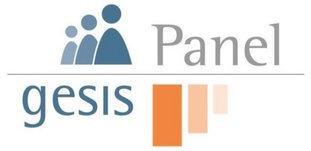Left-Right Orientation
Construct definition
The harmonized measurement instruments ask respondents to place themselves on a political continuum ranging from "left" to "right". This dimensional reduction of the political landscape is common in many surveys. The instruments do not explain what constitutes "left" or "right" substantively. Instead, the instruments rely on respondents subjective understanding of the terms.
Overview of all measurement instruments
The left-right orientation is measured by eight of the surveys included in QuestionLink. In total we harmonized seven German measurement instruments. Please note that some instruments are used by several surveys and some surveys use several different measurement instruments.
ⓘ Naming scheme for measurement instruments
Measurement instruments are named by the following scheme:
- The survey in QuestionLink which first used the measurement instrument.
- If there are several measurement instruments which were used first by the same survey, then instruments are differentiated with A, B, C, etc.. Letters are sorted by the number of years an instrument it was used in, starting with A for the most used.
- [x]pt for the number of response options (i.e., scale points).
List of measurement instruments
Here are the seven measurement instruments for the left-right orientation, which were harmonized using the QuestionLink Engine.
With a click on "➔ use as reference instrument" you choose a reference instrument. This will download an HTML-Document, which contains recoding scripts to harmonize all other measurement instruments towards the chosen reference.
ESS 11pt
ESS (9) — GESIS Panel (7) — NEPS (2) — ISSP (1) |
"In politics people sometimes talk of 'left' and 'right'. Using this card, where would you place yourself on this scale, where 0 means the left and 10 means the right?" 0 left • 1 • 2 • 3 • 4 • 5 • 6 • 7 • 8 • 9 • 10 right |
| ➔ use as reference instrument |
ALLBUS A 10pt
ALLBUS (10) — ISSP (1) |
"Many people use the terms "left" and "right" to describe differing political views. Here we have a scale that runs from left to right. If you think of your own political views, where would you place them on this scale?" left • • • • • • • • • right |
| ➔ use as reference instrument |
ALLBUS B 10pt
ALLBUS (10) |
"Many people use the terms "left" and "right" to describe differing political views. Here we have a scale that runs from left to right. If you think of your own political views, where would you place them on this scale?" F links • A • M • O • G • Z • E • Y • I • P rechts |
| ➔ use as reference instrument |
EVS 10pt
EVS(4) |
"In political matters, people talk of 'the left' and 'the right'. How would you place your views on this scale generally speaking?" 1 left • 2 • 3 • 4 • 5 • 6 • 7 • 8 • 9 • 10 right |
| ➔ use as reference instrument |
GLES 11pt
GLES(3) |
"In politics, people often talk about "left" and "right". (…) And how about yourself? Where would you place yourself on a scale from 1 to 11?" 01 left • 02 • 03 • 04 • 05 • 06 • 07 • 08 • 09 • 10 • 11 right |
| ➔ use as reference instrument |
GPANEL 7pt
GPANEL(3) |
"In politics, people often talk about ”left”or ”right”. Where would you place yourself on this scale from ”left”to ”right”?" 1 left • 2 • 3 • 4 • 5 • 6 • 7 • right |
| ➔ use as reference instrument |
SOEP 11pt
SOEP(3) |
"In politics, people often talk about "left" and "right" when describing different political views. When you think about your own political views, how would you rate them on the scale below?" 0 completely left • 1 • 2 • 3 • 4 • 5 • 6 • 7 • 8 • 9 • 10 completely right |
| ➔ use as reference instrument |
Recoding document revisions
We are steadily improving QuestionLink. This means that we will upload revised versions of the recoding documents from time to time. By clicking "use as reference instrument", you always download the most recent version. Below you find links with which you can view and download all past document versions. If you have previously downloaded a document, you can match the versions via the date displayed top and right in your recoding document. Revisions are limited to visual and language aspects. When we update the recoding tables themselves, we will report that specifically.








